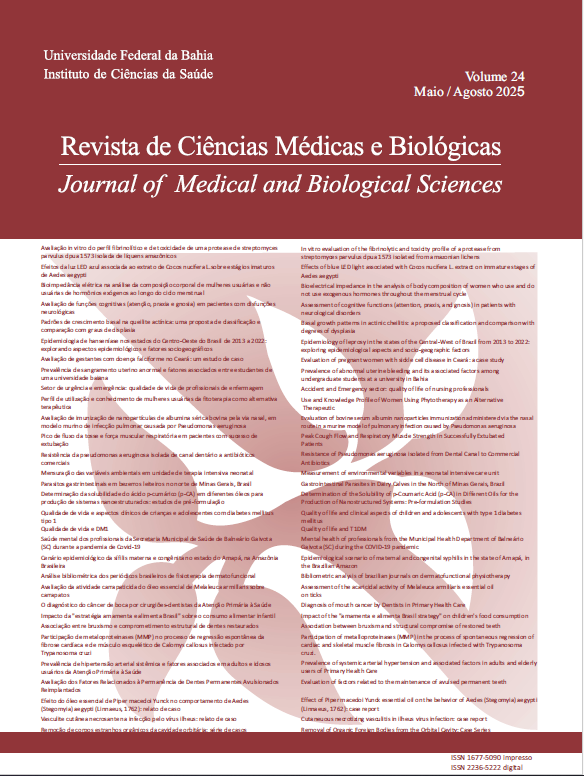Perfil de uso e conhecimento das mulheres usuárias da fitoterapia como alternativa terapêutica
Keywords:
Mulheres, Plantas medicinais, Fitoterapia, fitoterápicosAbstract
Introduction: phytotherapy is an integrative and complementary health practice widely used by the female population. However, studies reveal that there is significant lack of knowledge about the risks of inappropriate use of this practice, understanding that because it is natural, it would not pose any harm to health. Objective: to evaluate the profile of use and knowledge of users of herbal medicines and medicinal plants. Methodology: this is a quantitative research with a cross-sectional, non-experimental design and data collection carried out using a questionnaire containing questions about phytotherapy. Results: participated in the research 200 women users of phytotherapy, the majority aged between 26 and 59 years old (60%), married (45,5%), with a family income between 1 and 2 minimum wages (34%). A total of 85% stated that they did not know the difference between the terms medicinal plants and herbal medicines, 79% were unaware of the differences in the ways in which a medicinal plant is used, 58,5% stated that they did not know the risks of indiscriminate use of the practice and 89,5% % did not receive guidance from a health professional on the correct and safe way to use the plant for therapeutic purposes. Conclusion: it is noted that there are flaws regarding knowledge and adequate use of herbal medicine by women, as well as a lack of adequate guidance on rational use. Therefore, it is necessary to strengthen the construction of knowledge about this practice, not only among users, but also among health professionals, aiming for appropriate use.
Keywords: Women; Medicinal plants; Phytotherapeutics; Phytotherapy.
Downloads
Downloads
Published
How to Cite
Issue
Section
License
Copyright (c) 2025 Journal of Medical and Biological Sciences

This work is licensed under a Creative Commons Attribution 4.0 International License.
The Journal of Medical and Biological Sciences reserves all copyrights of published works, including translations, allowing, however, their subsequent reproduction as transcription, with proper citation of source, through the Creative Commons license. The periodical has free and free access.


